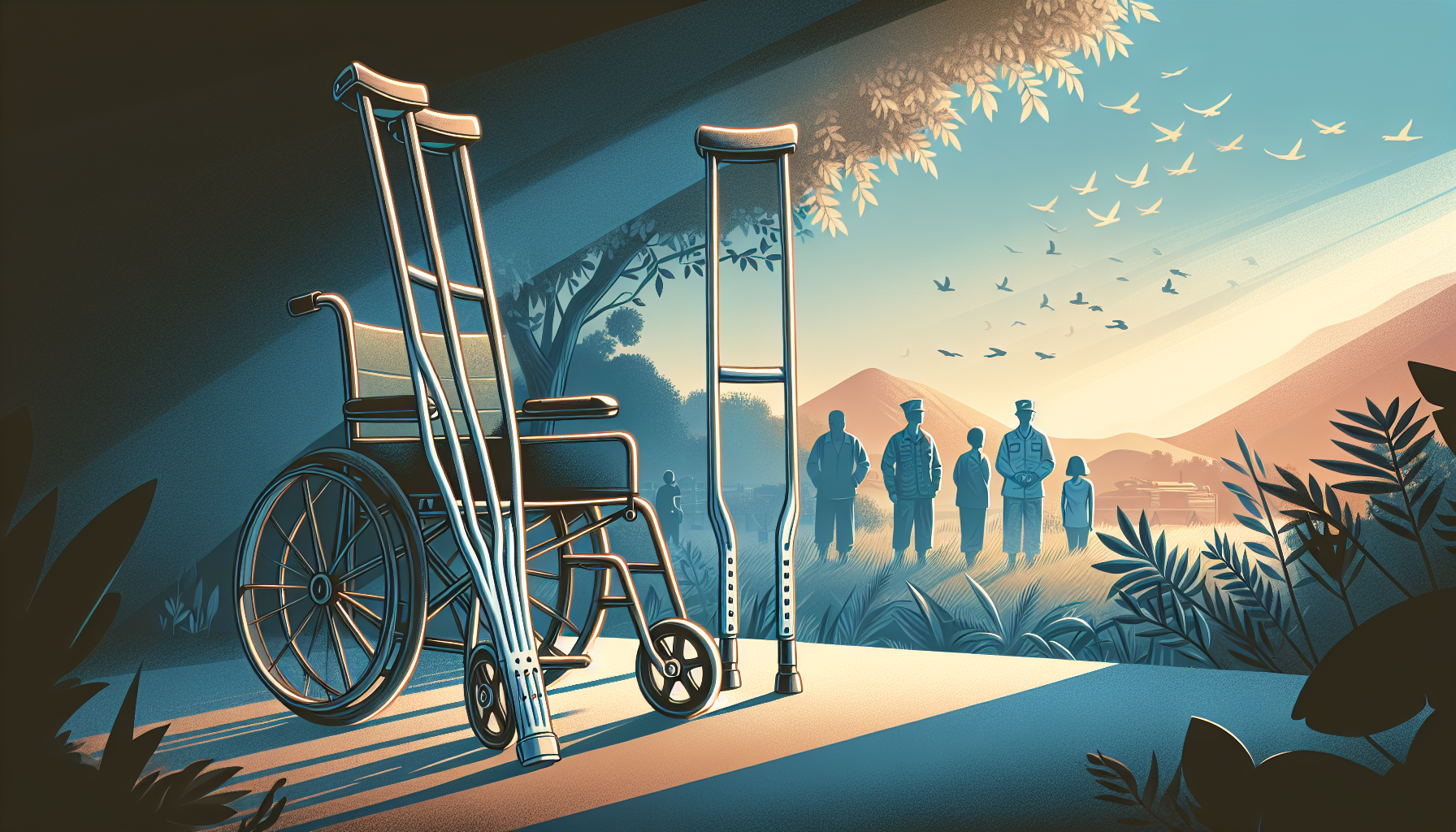Definition
In the context of VA benefits, “Loss of Use” refers to the inability of a veteran to perform the normal functions of a body part, such as a hand or foot, due to an injury or illness connected to their military service. This may result in their inability to engage in activities needed for daily living or work-related tasks. Veterans who experience Loss of Use may be entitled to additional VA disability benefits and support.
Key Takeaways
- Loss of Use refers to a specific type of disability compensation provided by the VA to veterans who have lost the ability to use certain body parts or functions due to service-related injuries or illnesses.
- This benefit includes additional monetary compensation and may also encompass accessibility accommodations for the veteran’s home or vehicle, ensuring their living circumstances are adapted to their disability.
- To qualify for Loss of Use benefits, the veteran must have a service-connected disability rating that renders a body part or function useless, such as complete paralysis of a limb, blindness, or the loss of a hand or foot.
Importance
The term “Loss of Use” in the context of VA benefits is important because it refers to a veteran’s inability to make normal and effective use of a particular body part, such as a limb or an organ, due to illness or injury sustained during military service.
This concept is a crucial aspect of the Department of Veterans Affairs’ (VA) disability compensation program, as it allows veterans to receive adequate financial support based on the severity of their disability.
By acknowledging and addressing loss of use in a comprehensive manner, the VA ensures that the benefits and assistance provided to veterans with disabilities are tailored to their individual needs, thus enabling them to lead better lives and receive the support they deserve for their service and sacrifices.
Explanation
Loss of Use is a significant term in the context of VA benefits, designed to provide substantial support to veterans who have experienced severe impairments in their ability to perform daily tasks due to service-connected disabilities. The primary purpose of Loss of Use benefits is to cater to veterans who have lost the ability to use a key extremity or body part, such as their hands, feet, or eyes, typically leading to difficulties in mobility and self-sufficiency.
By recognizing the sacrifices of veterans and the specific challenges they face, these benefits aim to improve their quality of life and ensure they have access to essential resources that address their unique needs. One crucial application of Loss of Use benefits is in offering financial compensation for eligible veterans, enabling them to obtain necessary adaptive equipment, prosthetics, or even specially adapted housing suited to their specific requirements.
In addition, these benefits may include increased compensation amounts and other supportive resources that cater to a wider range of needs, such as vocational rehabilitation programs, healthcare services, and transportation assistance, among others. Through the provision of such support, the Loss of Use benefits seek to minimize the veterans’ struggles and help them lead more independent, fulfilling lives despite the challenges posed by their service-related disabilities.
Examples of Loss of Use
Loss of Use refers to a condition where a veteran is unable or has a limited ability to use a particular body part or function, due to service-related injuries or disabilities. This can lead to a decrease in the person’s overall quality of life. Here are three real-world examples illustrating Loss of Use in relation to VA Benefits:
Loss of Use of Legs: A veteran who has sustained severe injuries, resulting in paralysis or the amputation of both legs, may be unable to walk or move independently. In such cases, the veteran can apply for compensation and additional benefits under the VA’s Special Monthly Compensation (SMC) category related to loss of use of legs. This might include financial support, adaptive housing grants, and access to prosthetics or mobility aids such as wheelchairs.
Loss of Use of Hands: A service member may have suffered injuries to their hands or arms, leading to an inability to perform daily tasks, such as dressing and eating. The permanent loss of use of one or both hands can qualify the veteran for benefits through the VA, including financial compensation, vocational rehabilitation, and access to adaptive devices like prosthetic limbs or specialized equipment.
Loss of Vision or Hearing: A veteran might have experienced an injury or illness during their service that resulted in a significant or complete loss of vision or hearing. In these cases, the VA classifies the disability as “loss of use” of eyes or ears and provides compensation and benefits accordingly. The affected individual may receive support like financial compensation, healthcare coverage, adaptive devices (e.g., specialized computer equipment or hearing aids), and educational or vocational assistance.In all these examples, the affected veterans can apply for VA benefits to support their well-being, independence, and quality of life after experiencing a loss of use due to service-related injuries or disabilities.
FAQ: VA Benefits – Loss of Use
What is Loss of Use in VA benefits?
Loss of Use is a special monthly compensation (SMC) provided by the VA to veterans with disabilities resulting in the total loss of function or use of certain body parts or organs. This benefit aims to compensate veterans for the challenges they face due to their service-connected disabilities.
What types of disabilities qualify for Loss of Use benefits?
Disabilities that may qualify for Loss of Use benefits include, but are not limited to, amputations, paralysis, or complete immobility of a limb or organ. Common examples include the loss of use of a hand, foot, leg, or eye.
How is Loss of Use determined?
The VA will evaluate the severity of a veteran’s disability and determine if it constitutes Loss of Use based on medical evidence, such as examinations and medical records. In some cases, a VA examiner may be required to confirm the extent of the disability.
Can I receive Loss of Use benefits in addition to my regular disability compensation?
Yes, you can receive Loss of Use benefits in addition to your regular disability compensation. Loss of Use is a special monthly compensation awarded on top of your standard disability benefits to account for the increased difficulties you face due to the disability.
How do I apply for Loss of Use benefits?
If your service-connected disability qualifies for Loss of Use, you can apply for benefits by submitting a VA Form 21-526EZ, Application for Disability Compensation and Related Compensation Benefits. You can also apply online through the VA’s eBenefits portal or visit a VA regional office for assistance.
Related VA Benefit Terms
- Adaptive Housing Grant
- Automobile Allowance
- Service-Connected Disability Compensation
- Prosthetic and Sensory Aids
- Independent Living Program
Sources for More Information
- US Department of Veterans Affairs
- Veterans Benefits Administration
- Disabled American Veterans (DAV)
- Veterans of Foreign Wars (VFW)
 Benefits.com Advisors
Benefits.com Advisors
With expertise spanning local, state, and federal benefit programs, our team is dedicated to guiding individuals towards the perfect program tailored to their unique circumstances.
Rise to the top with Peak Benefits!
Join our Peak Benefits Newsletter for the latest news, resources, and offers on all things government benefits.



















